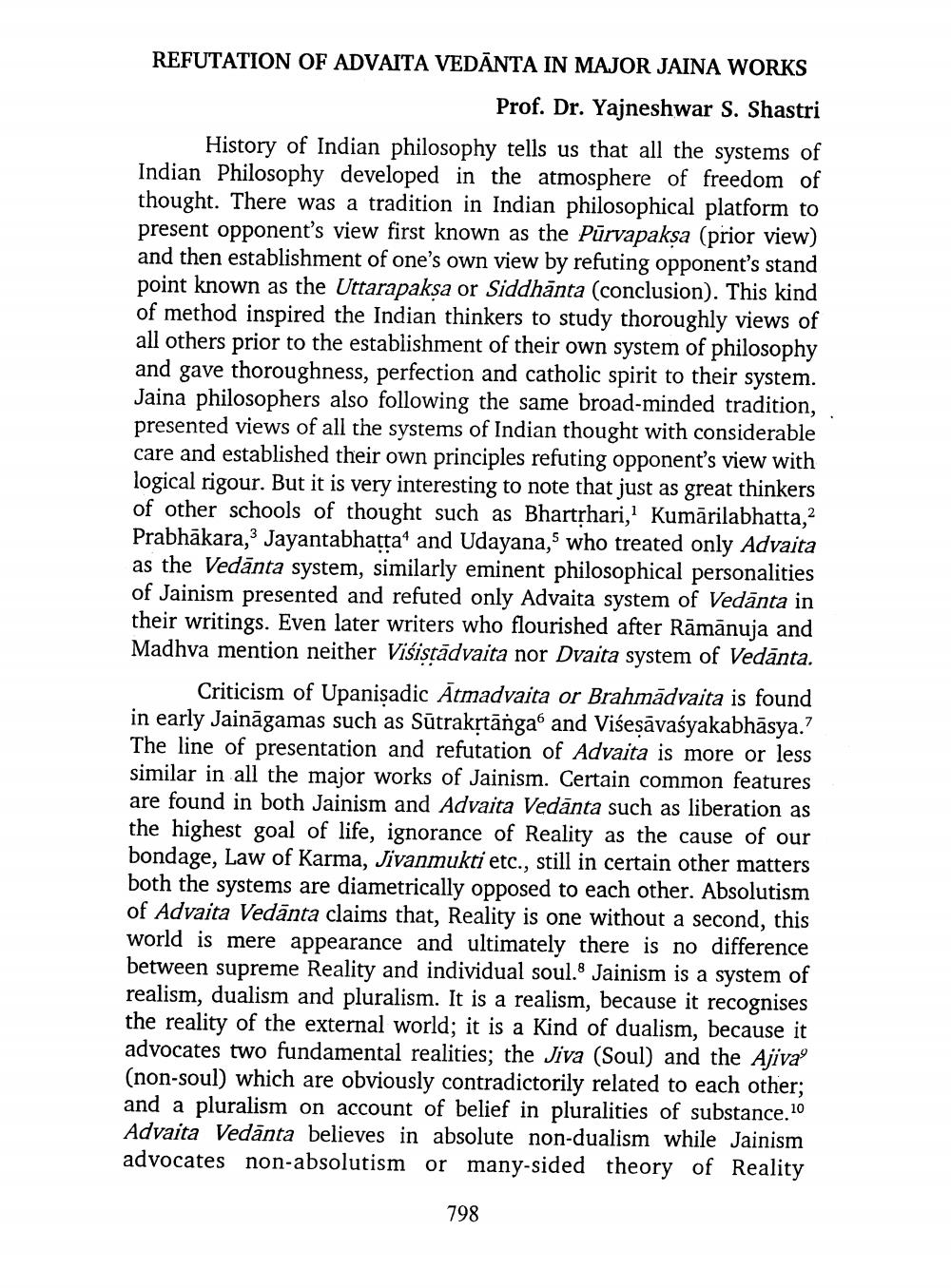________________
REFUTATION OF ADVAITA VEDANTA IN MAJOR JAINA WORKS
Prof. Dr. Yajneshwar S. Shastri
History of Indian philosophy tells us that all the systems of Indian Philosophy developed in the atmosphere of freedom of thought. There was a tradition in Indian philosophical platform to present opponent's view first known as the Purvapaksa (prior view) and then establishment of one's own view by refuting opponent's stand point known as the Uttarapaksa or Siddhanta (conclusion). This kind of method inspired the Indian thinkers to study thoroughly views of all others prior to the establishment of their own system of philosophy and gave thoroughness, perfection and catholic spirit to their system. Jaina philosophers also following the same broad-minded tradition, presented views of all the systems of Indian thought with considerable care and established their own principles refuting opponent's view with logical rigour. But it is very interesting to note that just as great thinkers of other schools of thought such as Bhartshari, Kumārilabhatta,2 Prabhākara, 3 Jayantabhatta4 and Udayana, who treated only Advaita as the Vedānta system, similarly eminent philosophical personalities of Jainism presented and refuted only Advaita system of Vedānta in their writings. Even later writers who flourished after Rāmānuja and Madhva mention neither Visistādvaita nor Dvaita system of Vedānta.
Criticism of Upanisadic Atmadvaita or Brahmādvaita is found in early Jaināgamas such as Sūtrakrtāngao and Višesāvaśyakabhāsya. The line of presentation and refutation of Advaita is more or less similar in all the major works of Jainism. Certain common features are found in both Jainism and Advaita Vedānta such as liberation as the highest goal of life, ignorance of Reality as the cause of our bondage, Law of Karma, Jivanmukti etc., still in certain other matters both the systems are diametrically opposed to each other. Absolutism of Advaita Vedānta claims that, Reality is one without a second, this world is mere appearance and ultimately there is no difference between supreme Reality and individual soul. Jainism is a system of realism, dualism and pluralism. It is a realism, because it recognises the reality of the external world; it is a kind of dualism, because it advocates two fundamental realities; the Jiva (Soul) and the Ajivao (non-soul) which are obviously contradictorily related to each other; and a pluralism on account of belief in pluralities of substance.10 Advaita Vedānta believes in absolute non-dualism while Jainism advocates non-absolutism or many-sided theory of Reality
798




